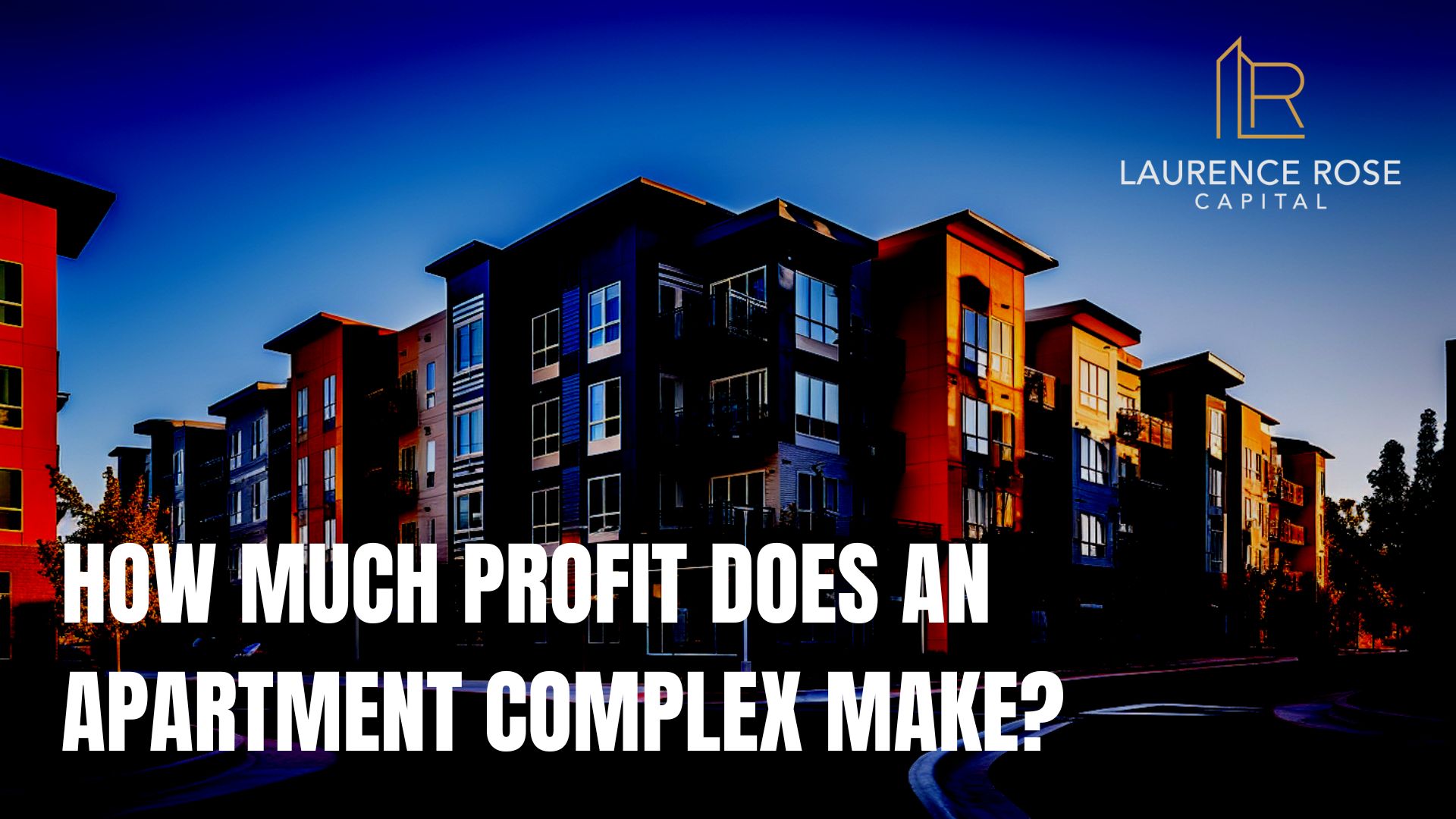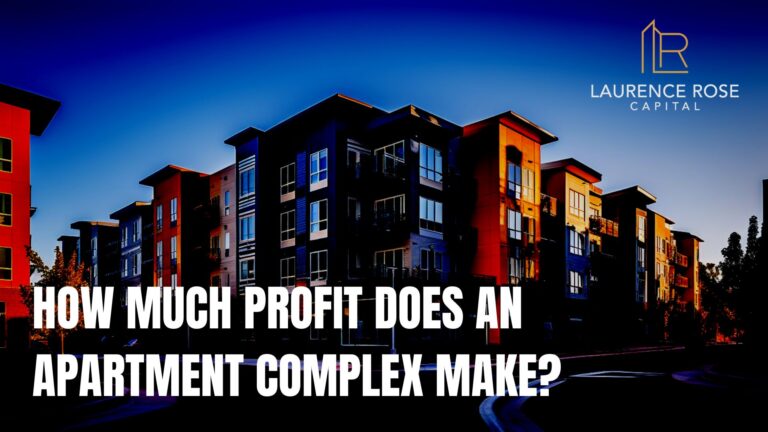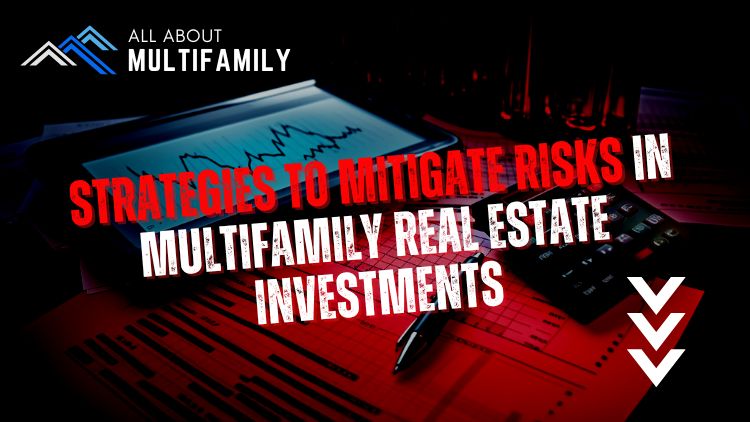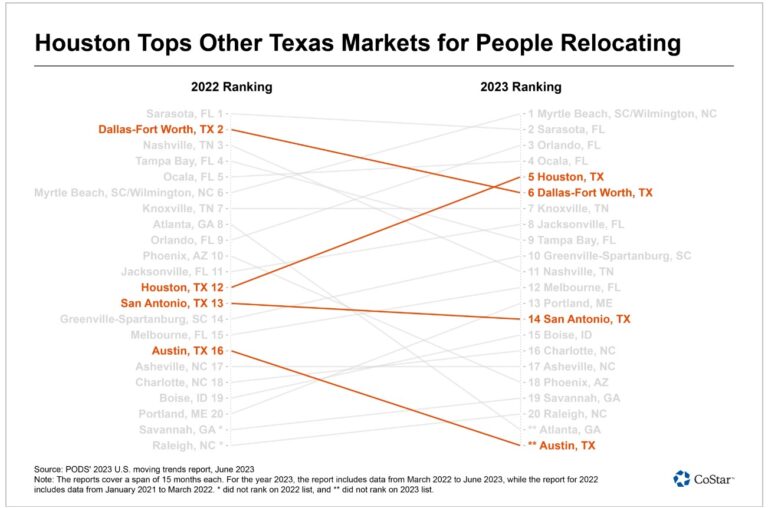Investing in apartment complexes can be an exciting prospect, but understanding the nuances of how much profit they can generate requires an in-depth examination of a multitude of factors. The profitability of an apartment complex is subject to various variables, including location, market conditions, operating expenses, tenant management, and financing terms. In this article, we will delve deeper into these key factors that significantly influence the profit potential of apartment complexes and explore how meticulous consideration of each aspect can maximize your returns.
Factors Impacting Apartment Complex Profitability
- Location: The location of an apartment complex stands as one of the most pivotal factors affecting profitability. Apartment complexes located in prime areas, such as urban centers or sought-after neighborhoods, tend to command higher rents and lower vacancy rates, thereby increasing the profit potential.
- Market Conditions: The overall state of the local real estate market plays a significant role in determining profitability. A robust demand for rental properties, coupled with limited supply, can result in higher rental rates and reduced vacancy rates, which, in turn, contribute to greater profits.
- Rental Rates: The rental rates you can charge for the apartments within your complex are critical for profitability. Striking a balance between competitive rents, in line with local market rates, and providing value to your tenants is essential for optimizing profit potential.
- Operating Expenses: Successfully managing and maintaining an apartment complex can be an expensive undertaking. Operating expenses encompass property management, routine maintenance, repairs, utilities, property taxes, insurance, and other costs essential for property upkeep. Vigilant control of these costs is pivotal to maximizing profits.
- Vacancy Rates: High vacancy rates can substantially impact profitability. Reducing vacancies necessitates effective marketing, stringent tenant screening processes, and the provision of outstanding amenities and services, all of which can enhance profit margins.
- Property Management: Efficient property management is fundamental to maintaining tenant satisfaction, reducing tenant turnover, and controlling operating expenses. Quality management ensures that resources are used optimally, thereby contributing to increased profitability.
- Financing and Debt Service: The terms of financing for the apartment complex, including the interest rate and the duration of the loan, can greatly influence profitability. Higher interest rates or shorter loan terms can increase monthly expenses, thus affecting profits.
Calculating Apartment Complex Profit
To ascertain the profit potential of an apartment complex, it is essential to consider both revenue and expenses. Here’s how you can calculate potential profit in greater detail:
1. Gross Income: Compute the annual gross income by multiplying the total number of units by the average monthly rent, then by 12 to account for the entire year.
2. Operating Expenses: Deduct the operating expenses from the gross income. These expenses include property management, routine maintenance, property taxes, insurance, utilities, and other costs essential for property upkeep.
3. Vacancy Rate: Subtract the estimated vacancy rate from the remaining income. For instance, if you expect a 5% vacancy rate, deduct 5% from the remaining income to provide a more realistic profit projection.
4. Debt Service: If you have a mortgage on the property, subtract the annual debt service (comprising principal and interest payments) from the remaining income.
5. Net Operating Income (NOI): After these deductions, you will have your Net Operating Income (NOI), representing the property’s profitability before accounting for the initial investment.
Calculating NOI in an Apartment Complex
To calculate the Net Operating Income (NOI) for an apartment complex, you need to consider both the revenue generated and the operating expenses. The formula for calculating NOI is:
NOI = Gross Rental Income – Operating Expenses
- Gross Rental Income: This is the total income generated by renting out the apartments in the complex. It includes the monthly rent collected from tenants and any other sources of income, such as laundry facilities or parking fees.
- Operating Expenses: Operating expenses include property management fees, maintenance and repairs, property taxes, insurance, utilities, and other costs associated with running and maintaining the apartment complex.
Key Metrics to Consider
In addition to NOI, several key metrics can provide a more comprehensive view of an apartment complex’s financial health:
- Capitalization Rate (Cap Rate): The Cap Rate is the ratio of the property’s NOI to its current market value. It offers a measure of the property’s potential return on investment.
- Cash Flow: Your annual cash flow is calculated by subtracting the annual mortgage payment (if applicable) from the NOI. This provides a more precise picture of the money you can expect to have at your disposal.
- Return on Investment (ROI): Calculate the ROI by comparing your initial investment to the annual cash flow. This percentage showcases how much profit you make in relation to your investment, offering a more detailed perspective on your investment’s success.
Different Ways to Enhance Revenue Generation
To increase the revenue generation of your apartment complex, consider the following strategies:
- Rental Rate Optimization: Regularly review and adjust rental rates to match market conditions and tenant demand.
- Amenities Enhancement: Invest in amenities such as a fitness center, swimming pool, or communal spaces to attract tenants willing to pay higher rents.
- Utilities Pass-Through: Implement a utility pass-through system to have tenants cover a portion of utility expenses, reducing your operating costs.
- Renovations and Upgrades: Improve the overall quality of the apartments through renovations and upgrades to justify higher rental rates.
- Additional Services: Offer services like pet care, cleaning, or package delivery to generate extra income.
How to Improve Resident Experience
Enhancing the resident experience can lead to lower turnover rates and higher profitability. Here are some ways to achieve this:
- Responsive Maintenance: Promptly address maintenance requests to keep residents satisfied.
- Community Engagement: Organize community events and create a sense of belonging among residents.
- Tenant Screening: Thorough tenant screening can ensure that you select responsible and reliable renters who are likely to stay longer.
- Online Services: Offer online rent payment and maintenance request portals for convenience.
- Regular Communication: Keep an open line of communication with tenants to address concerns and build positive relationships.
Conclusion
The profitability of an apartment complex is shaped by a myriad of factors, each deserving a more profound analysis. Thus, it is crucial to consider location, market conditions, rental rates, operating expenses, and effective property management in intricate detail. By conducting a comprehensive examination and gaining a deeper understanding of the financial aspects, investors can estimate how much profit an apartment complex can generate more accurately. Successful apartment complex investment demands meticulous planning, efficient management, and a profound understanding of market dynamics, culminating in a maximized return on investment and a financially rewarding venture. By considering key metrics and implementing strategies to enhance revenue and improve the resident experience, you can optimize the profitability of your apartment complex.



































![An In-Depth Look at Jake and Gino's Coaching Program [A Review]](https://allaboutmultifamilyinvesting.com/wp-content/uploads/2023/10/AAM-BMP-Blog-Covers-750-×-422px-6.jpg)


![Email Marketing Tips for Multifamily Real Estate Syndicators to Raise Capital [Templates included]](https://allaboutmultifamilyinvesting.com/wp-content/uploads/2023/09/AAM-BMP-Blog-Covers-750-×-422px-4.jpg)






![The Richest Kids In America [Book Review]](https://allaboutmultifamilyinvesting.com/wp-content/uploads/2023/09/AAM-BMP-Blog-Covers-750-×-422px-84.jpg)





















